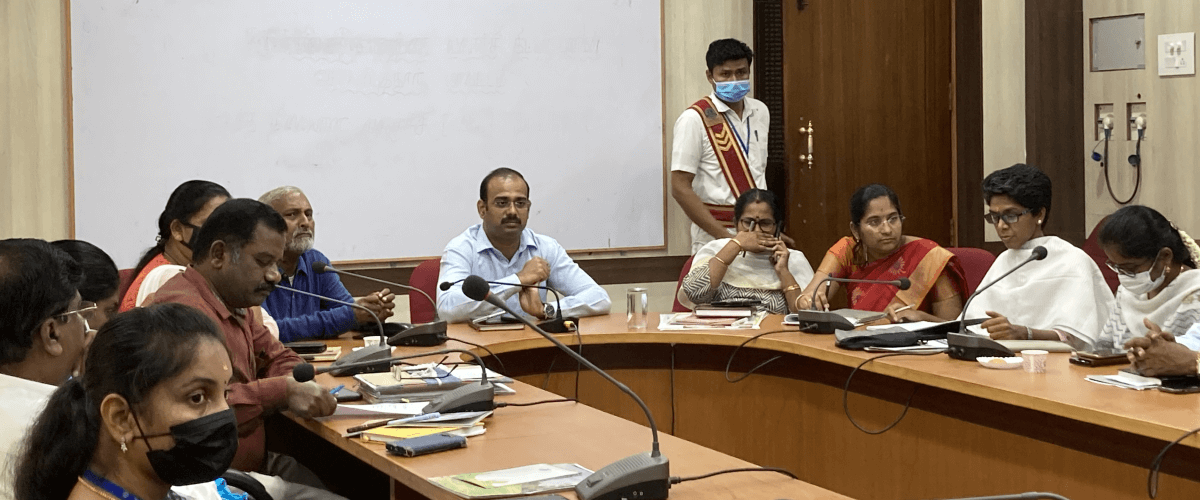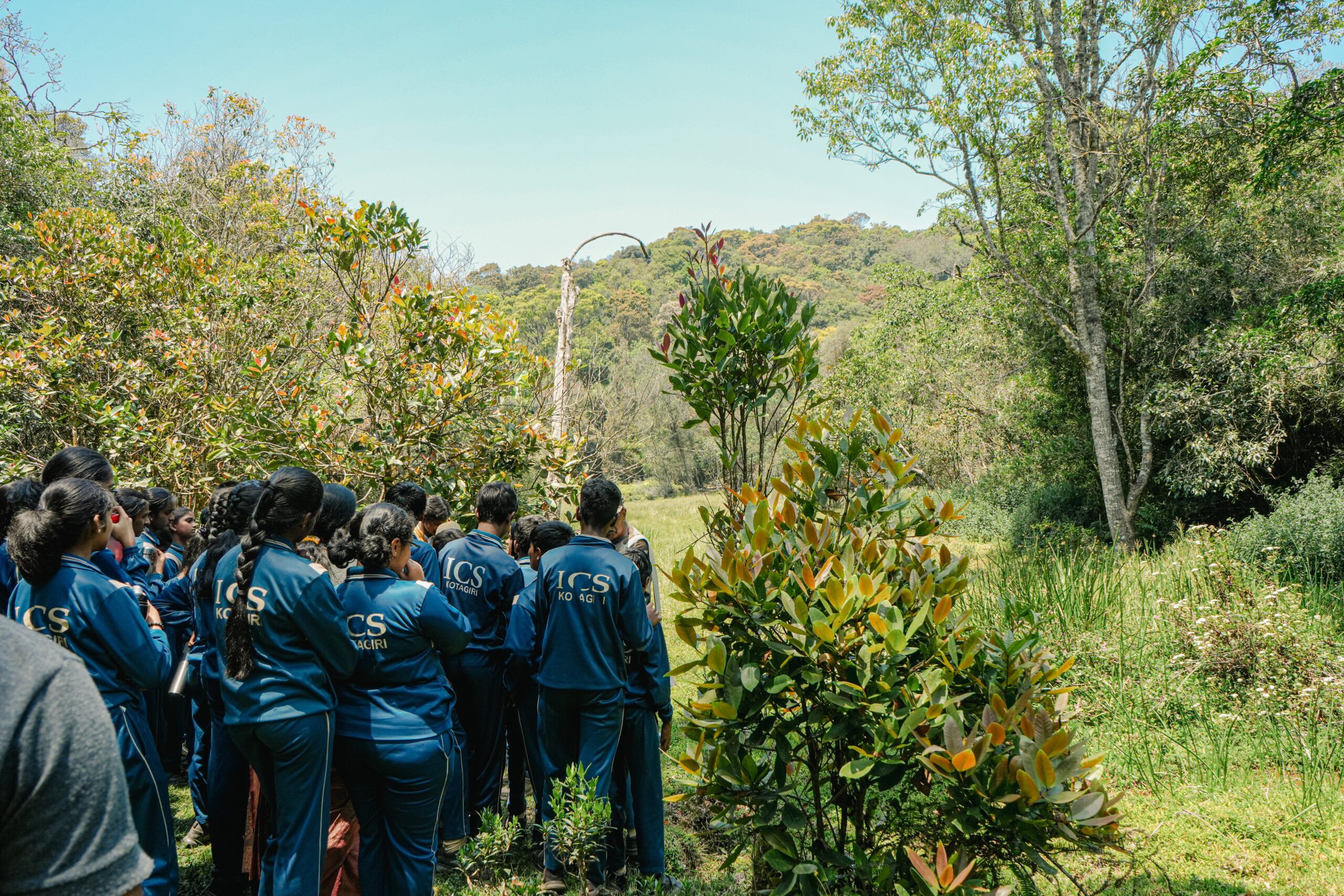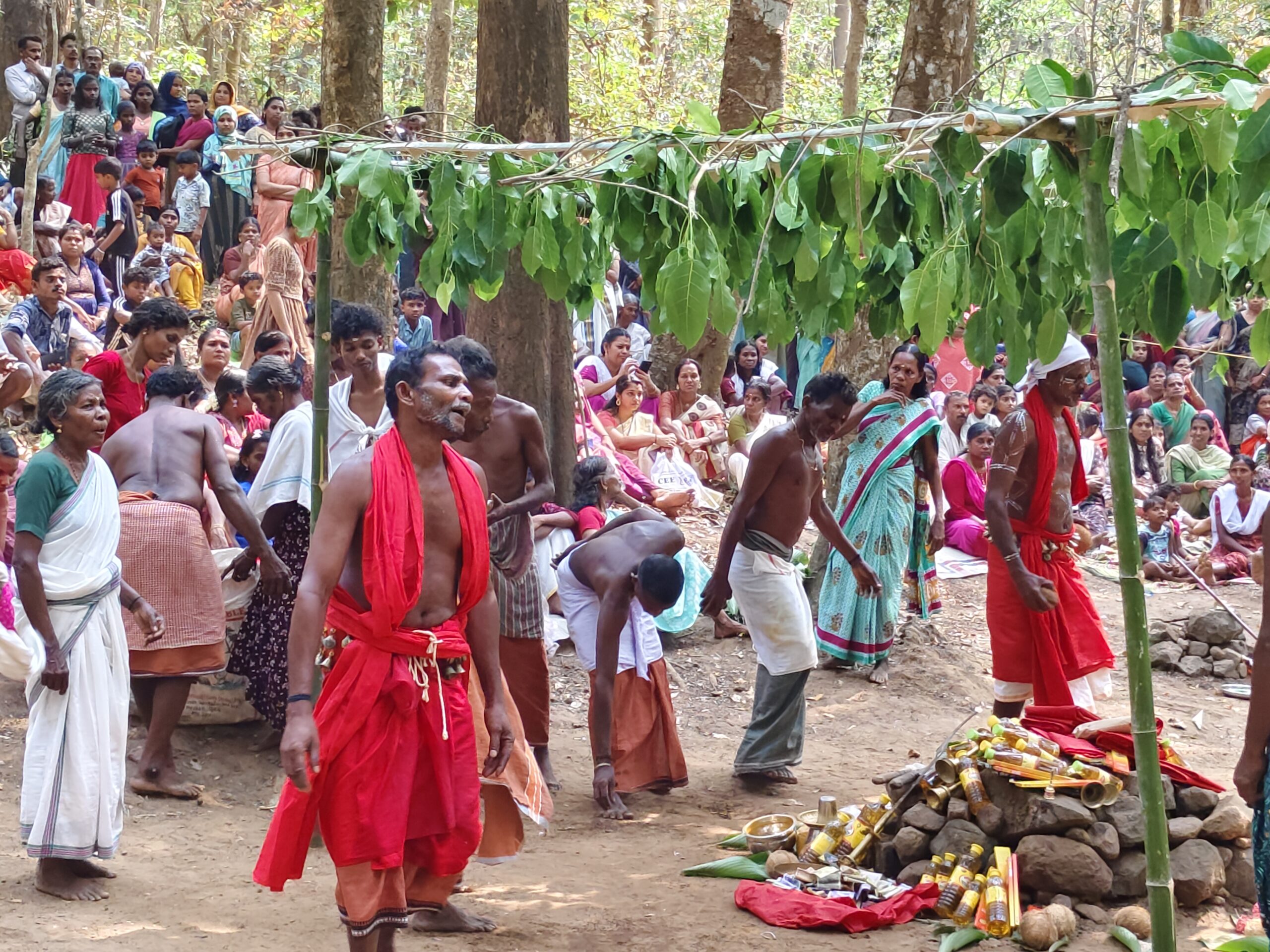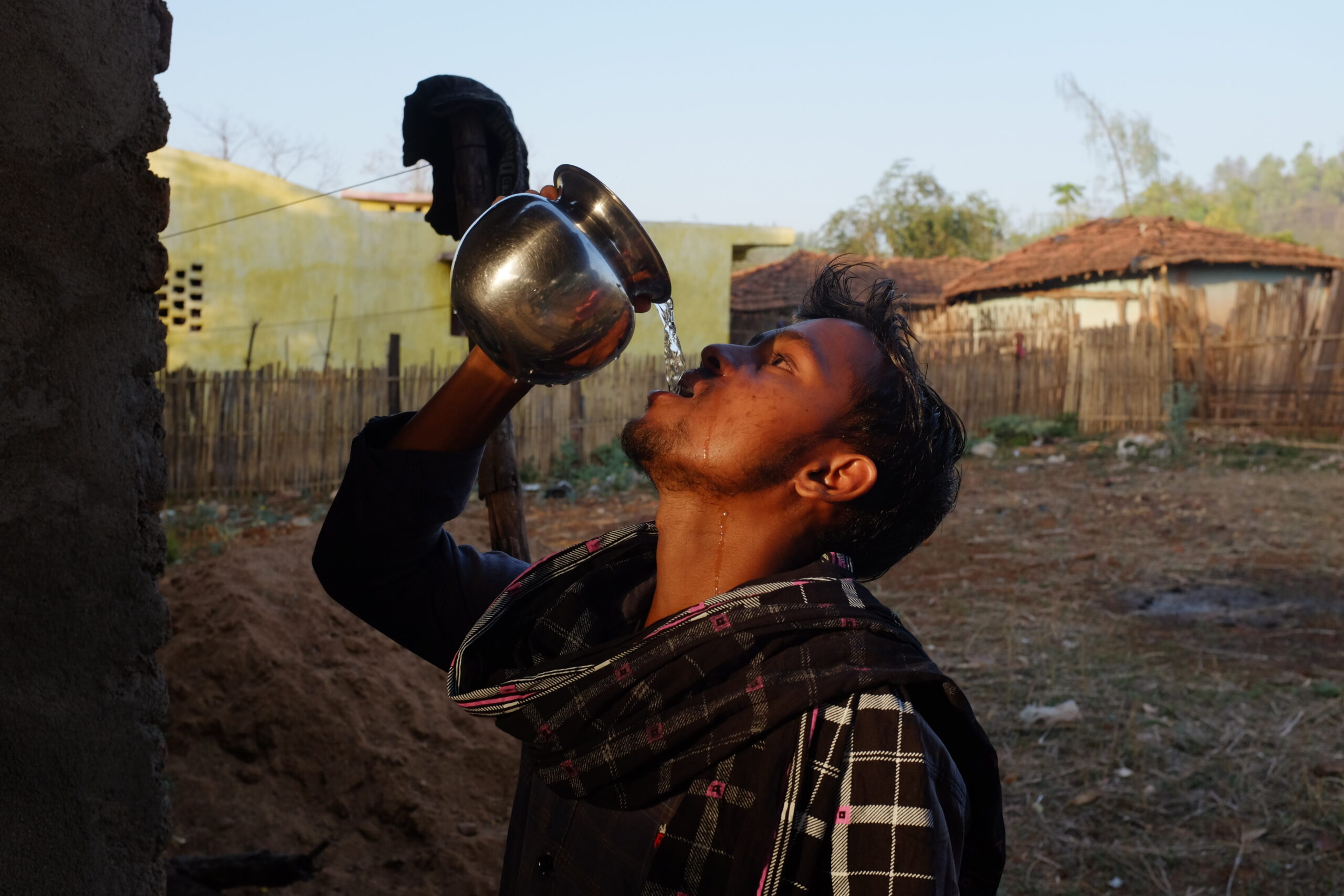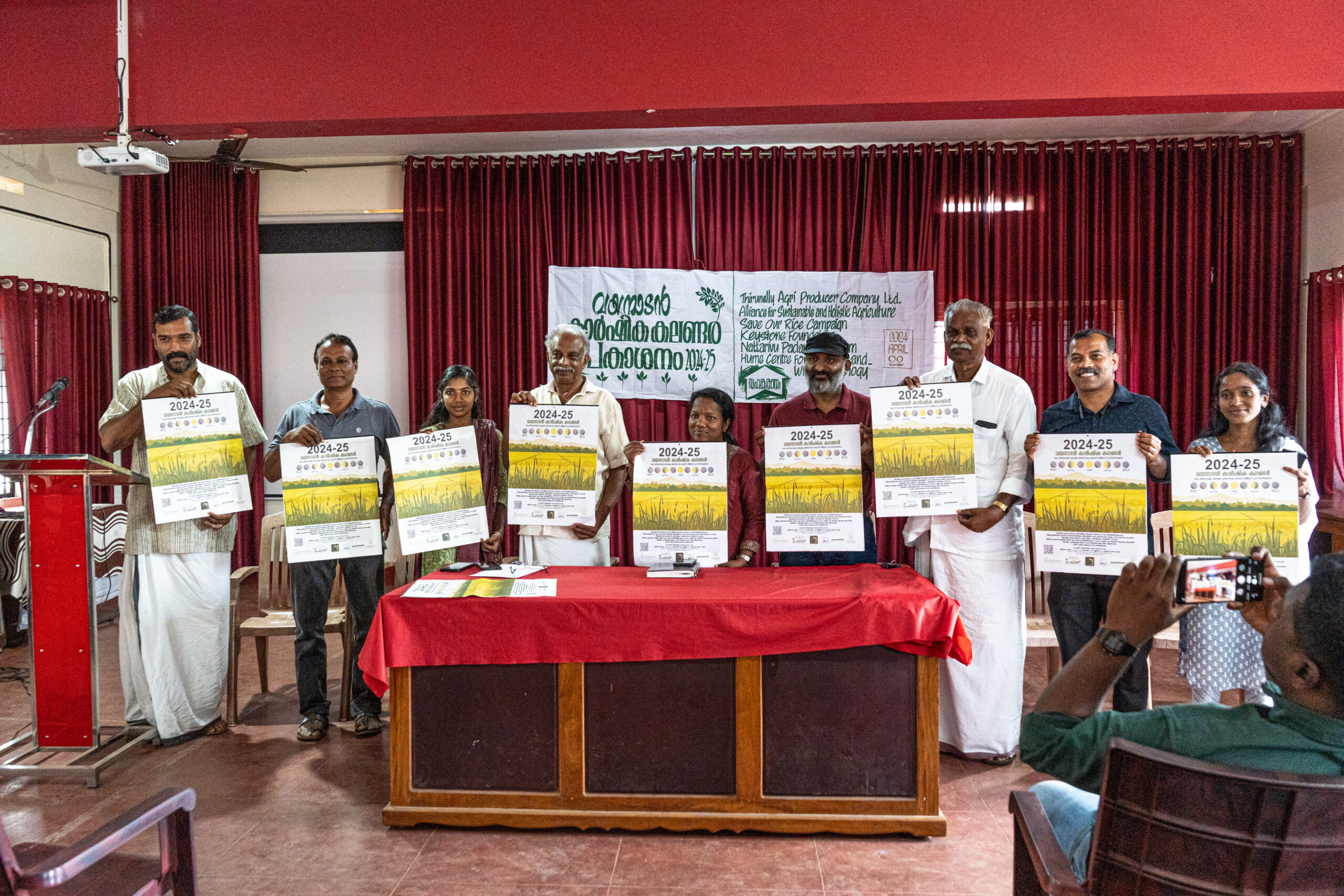September 23, 2022
By Vinitha Murukesan and Bagavanidhi M.
Project Coordinator – Community Well-being (Coimbatore)
Technical Coordinator – Governance
We’ve been working with the Tamil Nadu Urban Sanitation Support Programme (TNUSSP) for seven years now, with our projects largely based in the hills. With the two projects that were active in the plains (Periyanaickenpalayam and Narasimhanaickenpalayam) coming to a close, we appointed social sciences researcher Chandhni Sivashunmugam to explore potential projects that could be pitched to the government in Coimbatore. Three thematic areas were identified: urban and forest-based livelihoods, WASH (water, sanitation and hygiene) and implementation of the Forest Rights Act, 2006 (FRA).
We visited the Collectorate on September 23, and received an audience with Coimbatore Collector Dr. G.S. Sameeran IAS, Deputy Commissioner Dr. M. Sharmila, District Rural Development Agency (DRDA) Project Director S. Kavitha, and Tahsildar Bhuma, among several other government officials, including Karamadai forest ranger N. Divya.
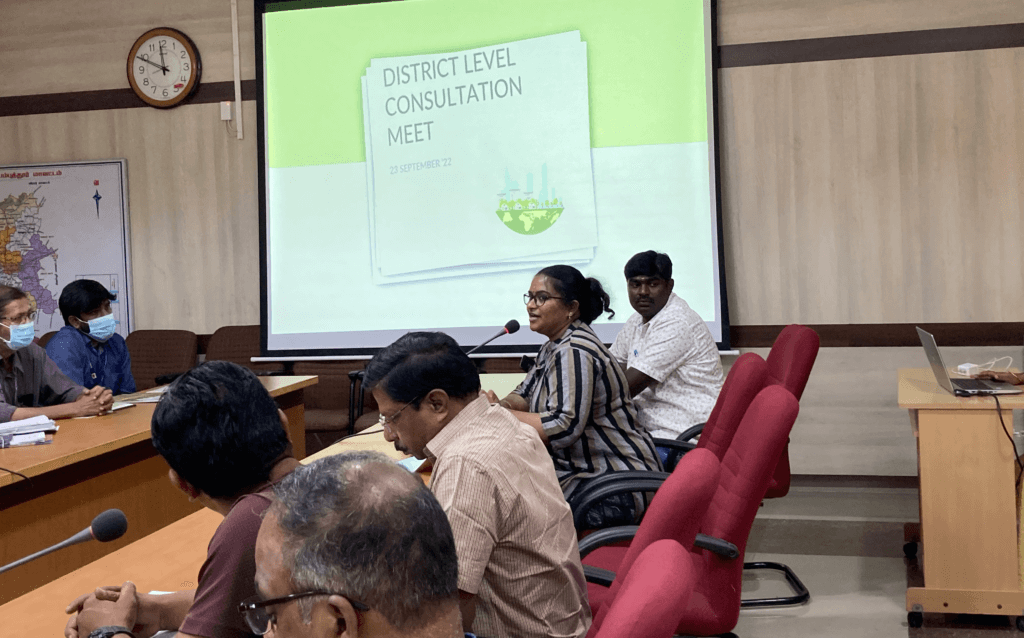
Our presentation elaborated on our previous successful projects and the impact felt by them across Coimbatore and the Nilgiris. We sought support from the government to enable us to work across several areas: to build skills with local livelihood groups, promote agroforestry practices, set up waste management plants in vulnerable areas, improve access to menstrual hygiene and health services for underprivileged women and adolescent girls, capacity building and support for sanitation workers, encouraging further involvement of Panchayats in implementing FRA and so on.
We received a positive response from the Collectorate officials, who suggested various possibilities for collaboration. They highlighted the situation in Keeranatham village, where sanitation workers’ settlements have been reeling from the impacts of severe, long-pending waste management issues. They also suggested a potential collaboration with the Integrated Child Development Scheme team members, who may highly benefit from capacity building on menstrual health management and education. We promised to share our module for schools on the same.

